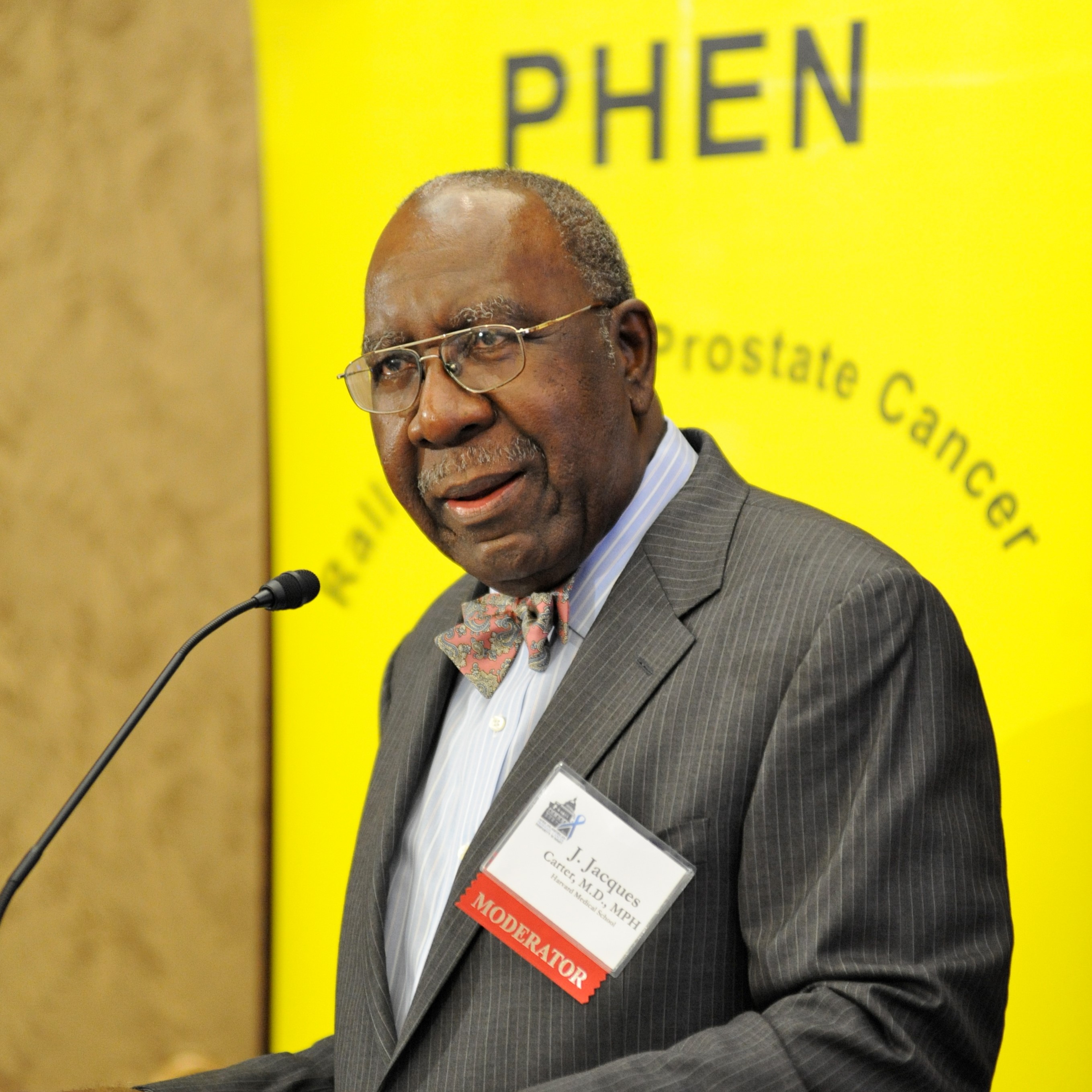Increasing the participation of African American men in prostate cancer clinical trials through education, awareness, support and collaborations. This portal provides clinical trials background information, details for specific trials, personal stories and other resources to support the Rally.
This information is not intended as medical advice for patients. Patients should consult their medical doctor for advice and recommendations about specific clinical trials.

"We must not be left behind with new prostate cancer treatments."
PHEN president and founder Thomas A. Farrington talks about his prostate cancer journey and the importance of African American men participating in clinical trials.
Information
|

Understanding the possible benefits for patients when participating in a clinical trial.
Clinical trials offer important and unique benefits to patients.
Information
|

What Are Clinical Trials?
Information that all patients need to know when considering enrolling into a clinical trial.
Information
|

Dr. J. Carter Presents Clinical Trials 101
Dr. Carter's brief video presentations provide basic information for patients to better understand clinical trials.
Information
|

Promise Registry
PROMISE is a nationwide registry of prostate cancer patients with inherited mutations by screening approximately 5,000 participants with a prostate cancer diagnosis. The PROMISE team is studying how these mutations affect patient outcomes.
Information
|

AMG 340
This study evaluates safety and the performance of AMG 340 in men with metastatic castrate-resistant prostate cancer (mCRPC). TNB-585 is a novel bispecific antibody, which binds to PSMA on prostate cancer cells and the CD3 molecule on T-cells (immune cell). It is used to treat men with mCRPC who have received 2 or more other forms therapy.
Information
|

AMG 509
This clinical trial is for patients who have metastatic castration resistant prostate cancer (mCRPC) and failed to respond to abiraterone acetate or enzalutamide (but not both) and to taxane-based chemotherapy.
Information
|

AMG 757
This study evaluates the safety and the maximum dose that can be handled by patients in this trial.
Information
|

Amplitude
The AMPLITUDE study is looking for men with newly diagnosed metastatic prostate cancer.
Information
|

CheckMate 7DX
The purpose of this study is to test the safety and efficacy of nivolumab with docetaxel in men with advanced castration resistant prostate cancer (mCRPC), who have progressed after second-generation hormonal manipulation.
Information
|

PROTEUS
The PROTEUS study is a randomized, double-blind, placebo-controlled, phase 3 study of an investigational drug in subjects with high-risk, localized or locally advanced prostate cancer who are candidates for radical prostatectomy.
Information
|

PSMAddition
A Study to evaluate the radioligand 177Lu-PSMA-617 (PluvictoTM) in patients with na?ve or minimally treated PSMA-positive metastatic hormone sensitive prostate cancer (mHSPC) (PSMAddition)
Information
|

Tamarack
The Tamarack clinical trial uses a new generation of therapy, MGC018, which targets advanced prostate cancer. MGC018 is antibody-drug conjugate (ADC), which carries a chemotherapeutic drug and delivers the drug prostate cancer cells. This targeted approach to cancer treatment allows for higher drug concentrations with less damage to healthy tissue. The primary objective of this clinical trial is to see how MGC018 performs in patient with mCRPC.
Information
|

PSMAfore
The clinical trial objective is to determine whether treatment with PluvictoTM will slow or stop the progression prostate cancer in men with progressive PSMA-positive mCRPC compared to participants treated with ARDT.
Information
|

SPLASH
This trial is for people with metastatic castration-resistant prostate cancer (mCRPC) who have progressed following treatment with an androgen receptor pathway inhibitor (ARPI), but who haven't yet received chemotherapy for mCRPC.
Information
|

P-PSMA-101
This clinical trial is for patients with metastatic castration-resistant prostate cancer (mCRPC) that has worsened despite having received hormonal and chemotherapeutic treatments.
Information
|

Drug PF-06821497
Prostate cancer is one of the most common types of cancer. Unfortunately, prostate cancer can often become resistant to hormone therapy and continue to progress despite ongoing treatment. When this occurs, it is called Castration Resistant Prostate Cancer (CRPC).
Information
|

TALAPRO-3
This trial is for people with metastatic castration-sensitive prostate cancer (mCSPC) and DNA damage repair (DDR) gene alteration.
Information
|

Low Risk Prostate Cancer
Clinical trials for patients who are diagnosed with low risk prostate cancer (Gleason 6). Patients may be interested in active surveillance or making a decision to begin active treatment.
Information
|

Intermediate Risk Prostate Cancer
Clinical trials for patients who are diagnosed with intermediate risk prostate cancer (Gleason 7). Patients may be interested in active surveillance or making a decision to begin active treatment.
Information
|

High Risk Prostate Cancer
Clinical trials for patients diagnosed with high risk prostate cancer (Gleason 8 - 10). Patients may be deciding on an active treatment protocol.
Information
|

Biochemical Recurrence of Prostate Cancer
Clinical trials for patients who have a recurrence of prostate cancer following primary treatment with surgery or radiation. These patients have not yet begun treatment with androgen deprivation therapy or are interested in quality of life studies.
Information
|

Non-Metastatic Castration Resistant Prostate Cancer (nMCRPC)
Clinical trials for patients whose PSA rises while they are on androgen deprivation therapy but prostate cancer has not metastasized.
Information
|

Metastatic Castration Resistant Prostate Cancer (MCRPC)
Clinical trials for patients diagnosed with metastatic prostate cancer that no longer responds to androgen deprivation treatment. Patients who are seeking treatment options following a diagnosis of MCRPC.
Information
|

Metastatic Castration Sensitive Prostate Cancer (MCSPC)
Clinical trials for patients with prostate cancer which has spread to other parts of the body but still respond to medical or surgical treatments that lowers testosterone
Information
|



































